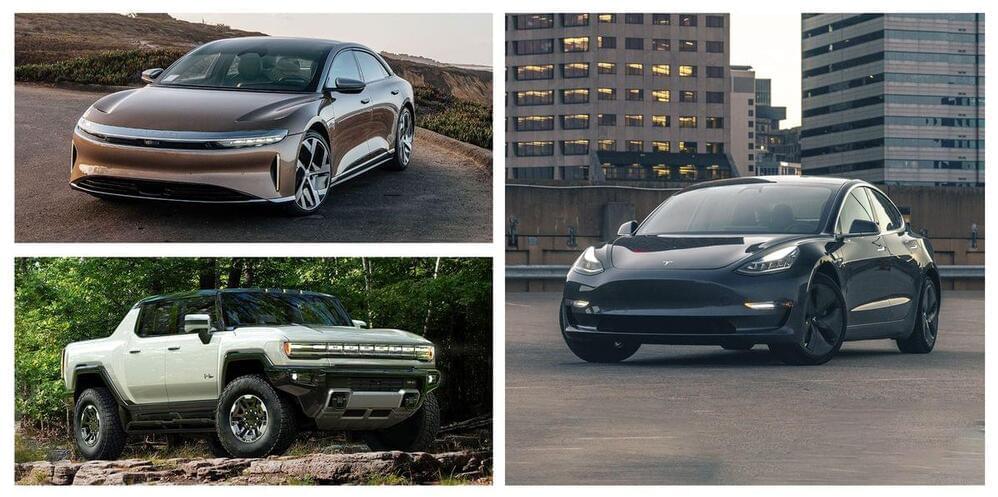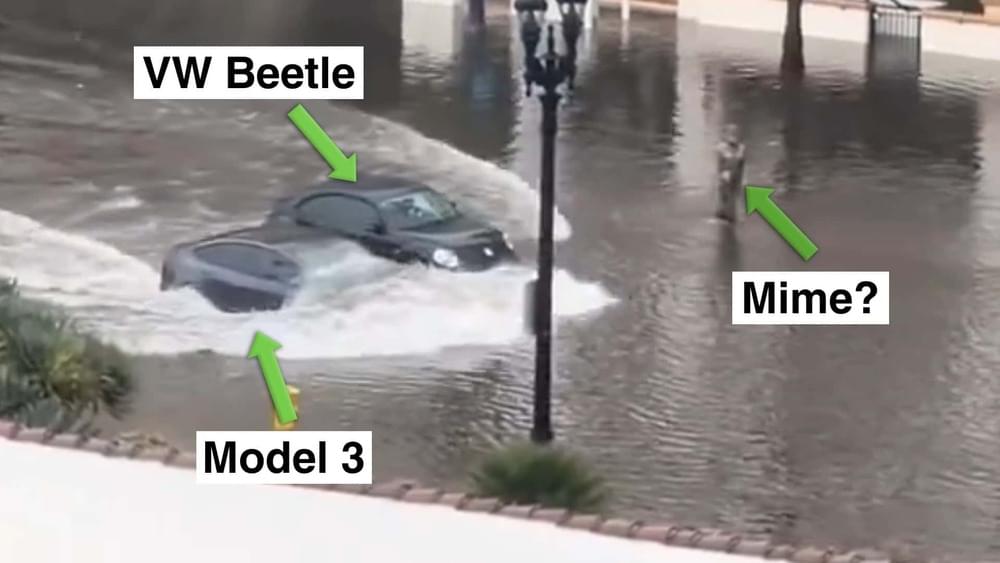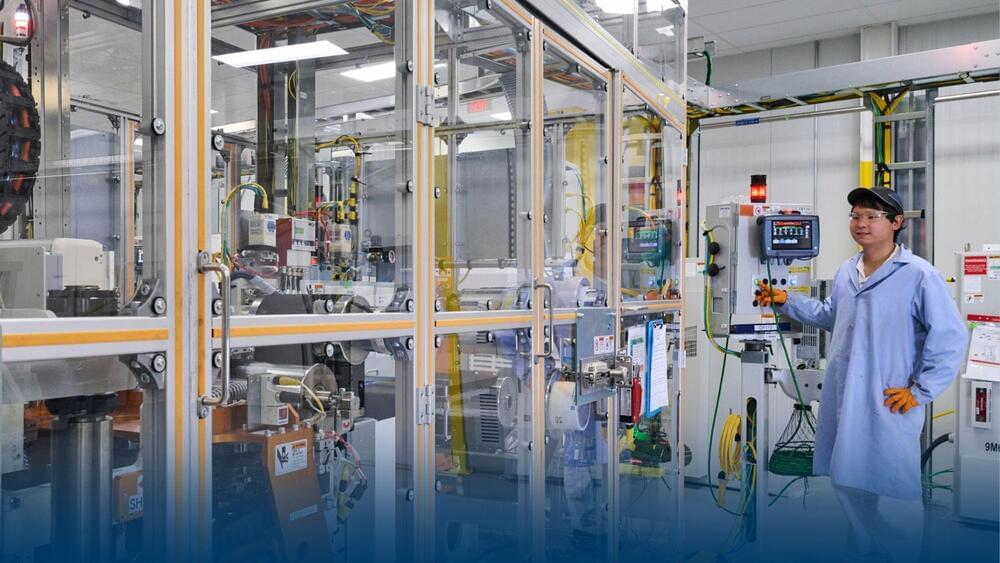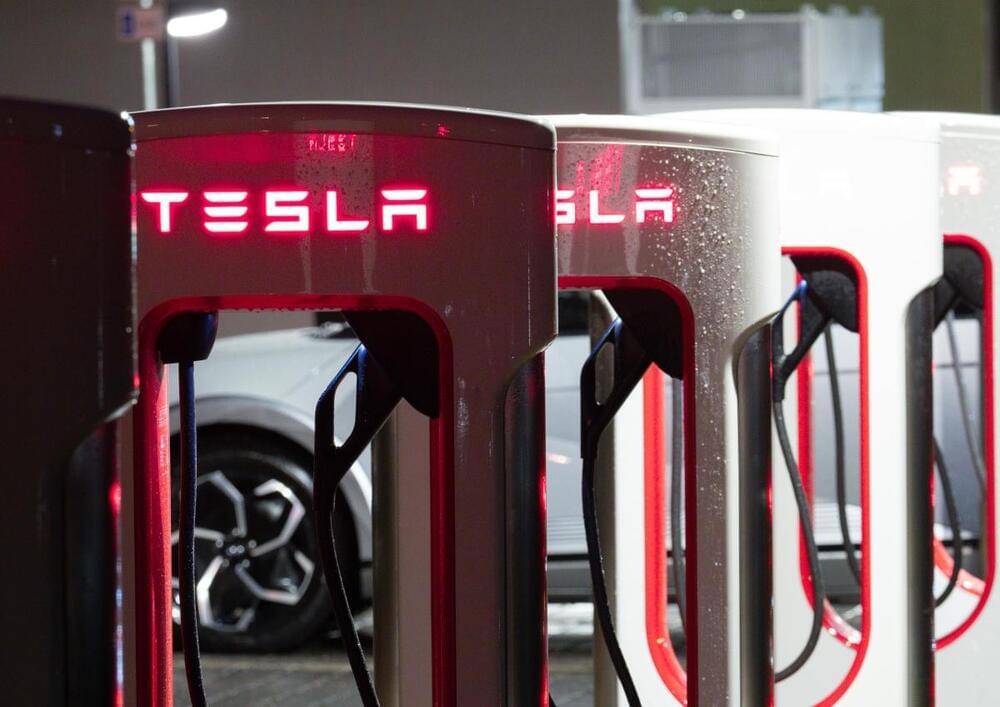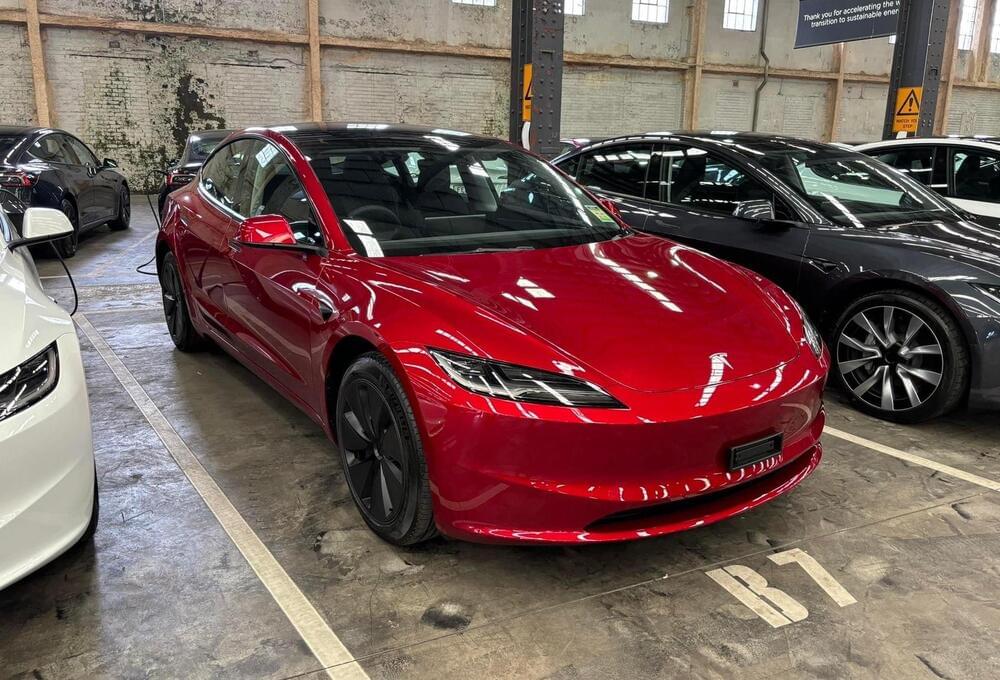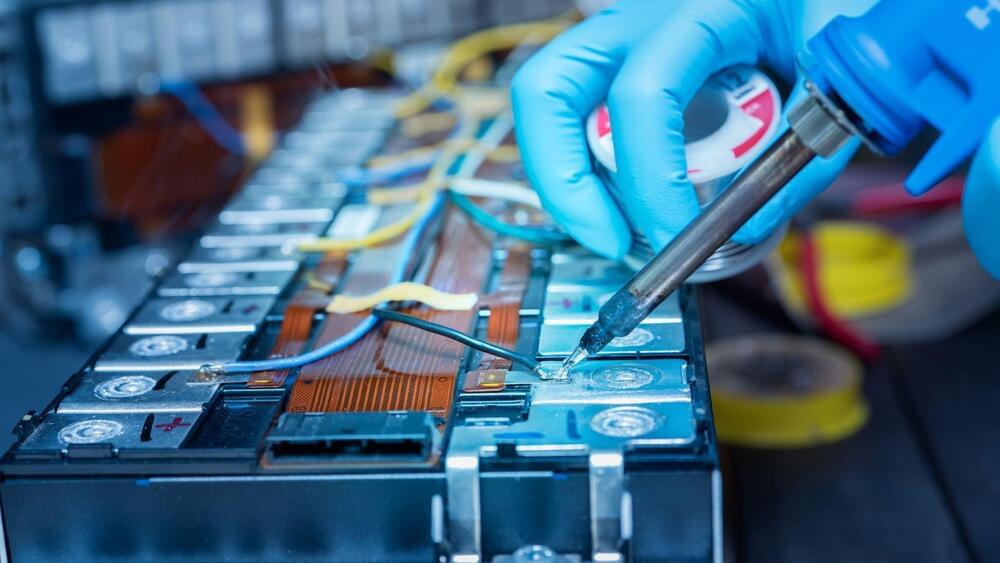Archive for the ‘transportation’ category: Page 63
Jan 29, 2024
Watch A Tesla Model 3 Casually Blast Through A Flooded Street In San Diego
Posted by Shailesh Prasad in categories: Elon Musk, sustainability, transportation
To make things even more interesting (or weird), there’s a mime (yes, you read that right) in the middle of the street, somehow unfazed by all the surrounding water, who reacts in a way only a mime could (we don’t know what those moves mean, so take that as you may).
Taking both X posts into consideration, there are about 1,000 comments–some say the car would malfunction in a matter of minutes, others say that nothing will happen, while some referred to Elon Musk’s words from 2016 when he said that “the Model S floats well enough to turn it into a boat for short periods of time.”
Jan 28, 2024
Your next new Hydrogen fuel cell could be made by GM and Honda
Posted by Gemechu Taye in categories: energy, transportation
Our plans include a new all-electric product for North America positioned at a price point lower than the upcoming Chevrolet Equinox EV.
GM and Honda start large-scale hydrogen fuel cell production, aiming to overcome challenges and revolutionize green transportation.
Jan 28, 2024
NASA’s autonomous software is a milestone in air taxi testing
Posted by Gemechu Taye in categories: robotics/AI, transportation
Dive into the details of NASA’s collaboration with Sikorsky and DARPA, as autonomous helicopters navigate simulated skies over Long Island Sound.
Explore the skies with NASA’s autonomous flight software, steering Sikorsky helicopters through air taxi tests. The technology can change the way we fly.
Jan 28, 2024
Best selling helicopter to be now assembled in India as Tata and Airbus sign deal
Posted by Gemechu Taye in category: transportation
Tata and Airbus will become the first private sector companies to manufacture helicopters in India.
Tata Group, one of India’s leading conglomerates, announced the signing of an agreement with France’s Airbus to jointly manufacture civilian helicopters. The deal, announced during French President Emmanuel Macron’s state visit to India, signifies a deeper collaboration between the two nations in the aerospace sector.
Speaking at a media briefing, India’s Foreign Secretary Vinay Kwatra revealed that the agreement between Tata Group and Airbus to produce H125 helicopters would feature a “significant indigenous and localization component.”
Jan 28, 2024
Tesla to build Dojo supercomputer at NY gigafactory, Elon Musk confirms
Posted by Gemechu Taye in categories: Elon Musk, robotics/AI, supercomputing, sustainability, transportation
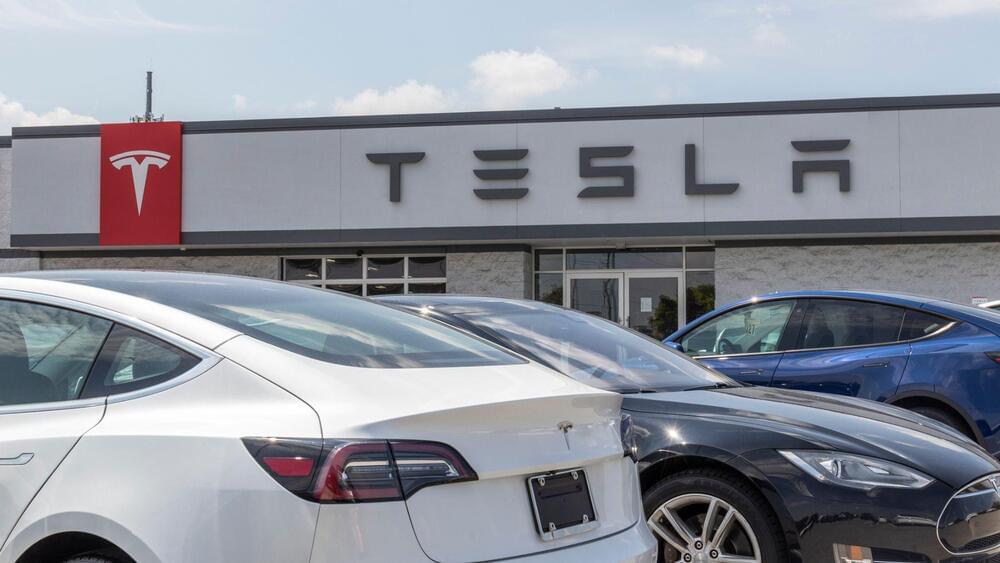
Tesla is gearing up to build its next-generation Dojo supercomputer at its Gigafactory in Buffalo, New York, as part of a $500 million investment announced by the state’s governor on Friday.
The Dojo supercomputer is designed to process massive amounts of data from Tesla’s vehicles and train its artificial intelligence (AI) systems for autonomous driving and other applications. It is expected to be one of the most powerful computing clusters in the world, surpassing the current leader, NVIDIA.
Jan 28, 2024
2025 Tesla Model 2 and Model Q production timing confirmed
Posted by Shailesh Prasad in categories: Elon Musk, sustainability, transportation
Elon Musk references a “revolutionary” late 2025 production start for EV brand’s new low-cost small car and SUV
Tesla CEO Elon Musk has outlined a 2025 production start for the all-electric car-maker’s upcoming “next-generation low-cost vehicle”, and confirmed the new model will initially be produced at Giga Texas before being outsourced to other plants around the world.
Musk made the announcement overnight during an investor’s earnings call and said the manufacturing processes set to be employed for Tesla’s new entry-level model/s will be revolutionary and head and shoulders above any other vehicle production on the planet.
Jan 27, 2024
Elon Musk confirms a new low-cost Tesla model is coming in 2025
Posted by Omuterema Akhahenda in categories: Elon Musk, sustainability, transportation
Tesla is reportedly working on compact crossover EV codenamed “Redwood” with production set to start in June 2025, sources familiar with the matter told Reuters. The company is said to have sent requests for quotes for the new model to suppliers last year, predicting a weekly production volume of 10,000 vehicles.
Elon Musk has confirmed that a “next-generation low-cost” Tesla EV is in the works and is “optimistic” that it’ll arrive in the second half of 2025, he said in an earnings call yesterday. He also promised “a revolutionary manufacturing system” for the vehicle that’s far more advanced than any others in the world by a “significant margin.”
An article yesterday from Reuters indicated that the new vehicle would be a small crossover codenamed “Redwood.” Tesla reportedly sent requests to suppliers for quotes, predicting a weekly production volume of 10,000 vehicles. Musk previously stated that the automaker is working on two new EV models that could sell up to 5 million per year, combined.
Continue reading “Elon Musk confirms a new low-cost Tesla model is coming in 2025” »
Jan 27, 2024
Tesla confirms new Model 3 Performance configuration is coming
Posted by Shailesh Prasad in categories: sustainability, transportation
Tesla has confirmed a new Model 3 Performance configuration is coming, but the big questions of when it is and what changes it will have remain up in the air.
Early in 2024, Tesla removed the Performance configuration from the Model 3’s list of available trims. It was the most expensive of the three Model 3 offerings, but it still qualified for the EV Tax Credit.
With the rollout of the new Model 3 ‘Highland’ globally, Tesla has not yet finalized a Performance version of the vehicle. Currently, it only offers two variants: the Rear-Wheel-Drive and Long Range.
Jan 26, 2024
Cornell researchers develop breakthrough EV battery that charges under 5 mins
Posted by Shailesh Prasad in categories: engineering, sustainability, transportation
A research team led by Lynden Archer, professor and dean of Cornell Engineering, has developed a new lithium battery that can charge in as little as five minutes. This could help address anxiety associated with the charging time of electric vehicles (EVs) and increase their adoption.
In their bid to reduce emissions from transportation, countries worldwide are looking to electrify various modes of transport. Road-based transport such as cars, buses, and trucks have led this transformation, aiming to even ban the sale of fossil fuel-powered cars in the next decade.
With technological advances, the fastest commercial charger can charge up an EV in no less than 30 minutes. While this might be a major improvement over the 8-hour charge cycles of a typical home-based charger, it still needs to be improved for large-scale adoption of EVs.
